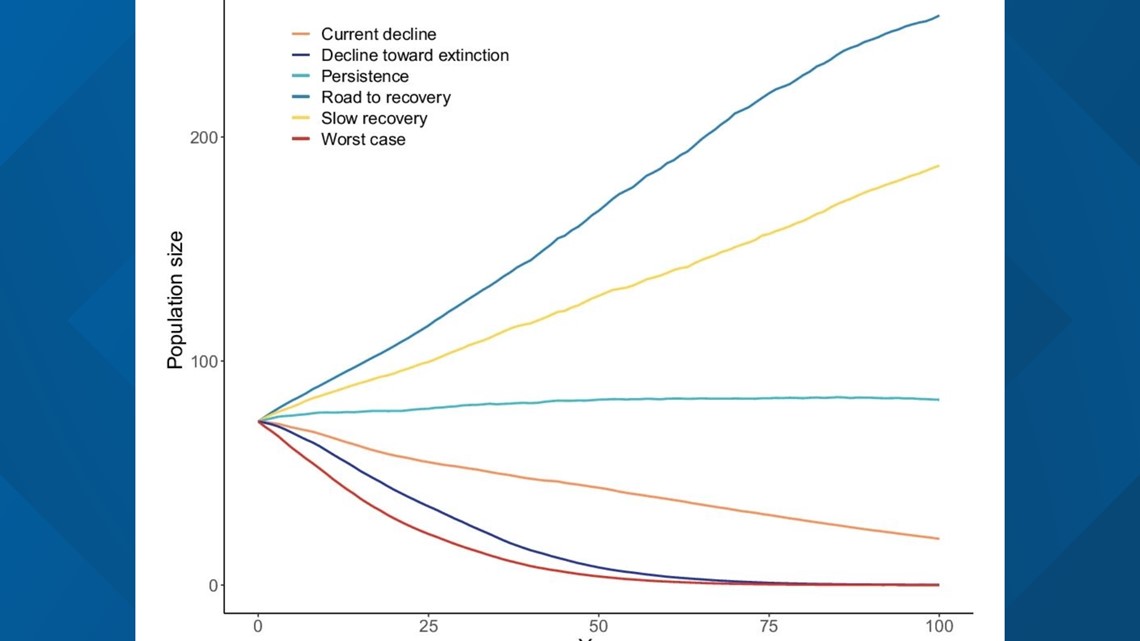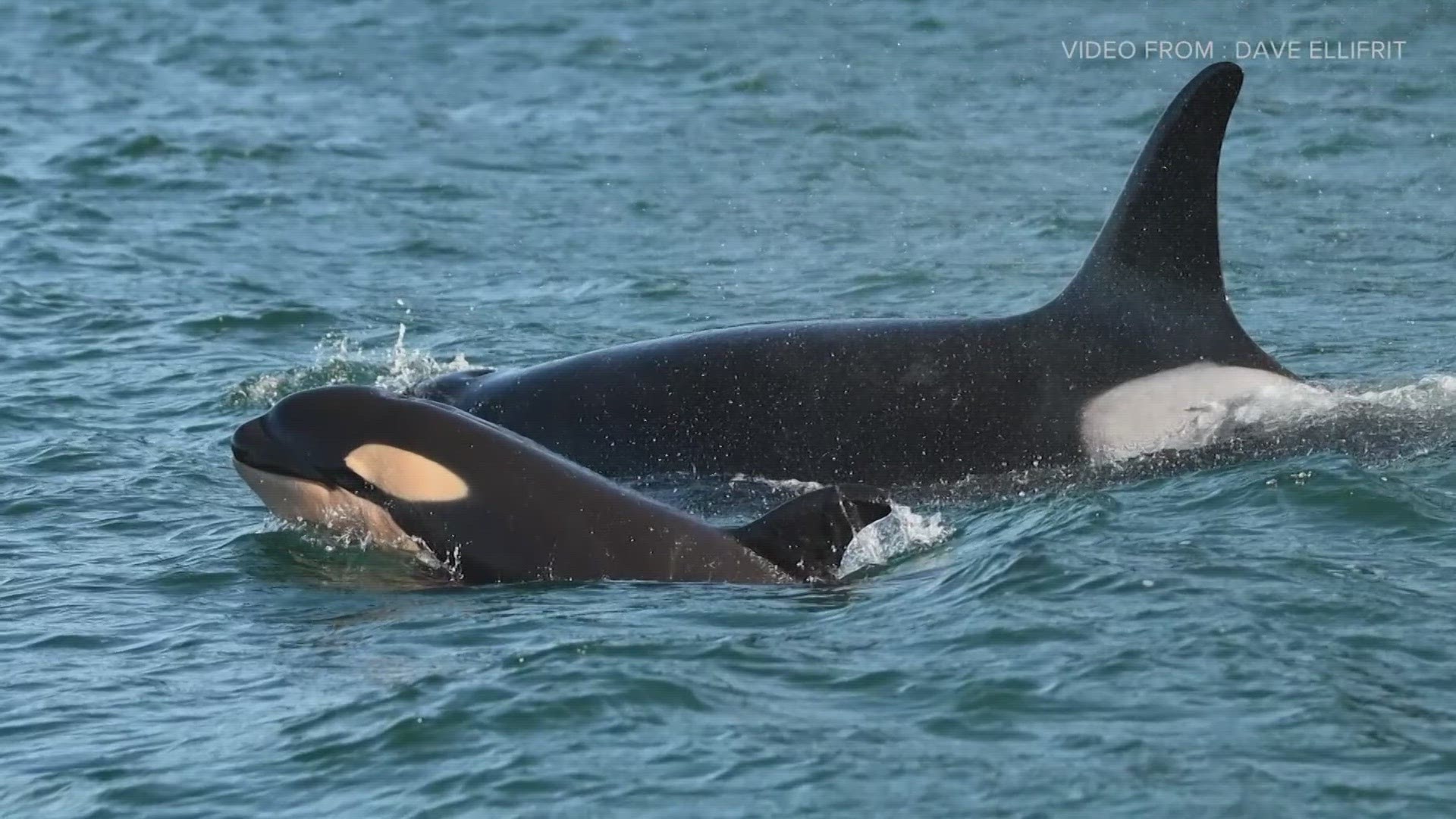SEATTLE — A new scientific study published this week said there are "warning signs" indicating that the Southern Resident orcas extinction risk is accelerating rapidly.
The study, which was published Tuesday in "Nature," found that the Southern Resident population has been declining by about one whale per year. There are 74 Southern Resident orcas alive right now, but researchers predict less than two dozen will be left within a century.
Rob Williams, chief scientist and co-founder of Ocean's Initiative, said the root causes of the orca population decline can be connected to "unsustainable" live capture fishing in the 1970s and 1980s, which limited the salmon population, too much noise and habitat destruction.
Researchers said warming river and ocean water is disrupting the chinook salmon population, the orca's primary food source.
"There's just not enough salmon," Williams said. "(And) there's too much noise, which makes it harder for the whales to find the salmon. And when they do find their salmon, it's full of PCBs and contaminants that are stored in their blubber, and that's actually causing calves to die."
Williams said researchers found seven years ago that Southern Resident orcas need 30% more salmon and 50% less noise for the population to bounce back. Through efforts by Vancouver and Seattle, slowing down ships has reduced noise by almost 50%, according to Williams.
But now, Williams said, new studies suggest orcas will need to eat more salmon than previously suggested to thrive.
"It's going to take a little bit of everything but what's interesting is that this population is not dying because of a hunt or a harvest," Williams said. "They're not being struck by ships. They're not being entangled in fishing gear. We're losing them through a death by 1,000 cuts. And a good friend and colleague said: the solution to the death by 1,000 cuts is 1,000 band-aids. Where are we going to find 1,000 band-aids? Where are we going to find a few more salmon in Alaska in B.C., in Washington state, Oregon to California? Where can we get them a little bit more? More food and quiet enough conditions to hunt them in?"
According to the study, researchers have charted six different trajectories for the Southern Resident population in the next 100 years.
The most optimistic projection – labeled "road to recovery" in the chart below – shows the orcas' population rising from 74 in 2024 to over 200 in the next century.
But the most pessimistic projection – labeled "worst case" – would mean the Southern Resident population would be extinct in 50 years.
Meanwhile, the current trajectory, according to the study, indicates the orca population will drop below two dozen animals in the next 100 years – if mitigating measures to help the animals are not taken.
Southern Resident orca population projections over the next 100 years


Williams said salmon restoration is a key part of the researchers' focus, but it is not the end-all-be-all solution to save the orcas from extinction.
The authors of the study said it may be time for drastic interventions, like vaccinating orcas, mandatory ocean noise limits, and changing fishery regulations.
"All hope is not lost," Williams said. "It is not too late to save this population. It's just that we only have about a generation left to turn it around. So we can save them, but it will require all hands on deck, and it will require a heavier lift than it would have had we acted 50 years ago, but we can do it."
Even as the warning signs signal a potentially dire future for the Southern Resident orcas, Williams said there is enough time to reverse the trends that have pushed the animals to the risk of extinction.
"I think you know anyone who lives here cannot imagine a Pacific Northwest without Southern Resident killer whales, and I can't either," Williams said. "The good news is that we don't have to imagine it. It is possible to save them, but it's going to require us acting on all of the information quickly and boldly and aggressively and now."

